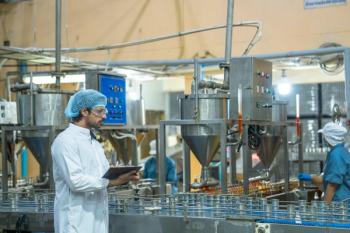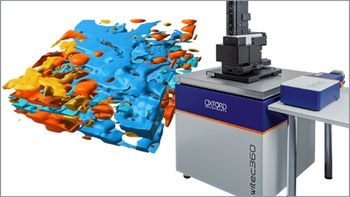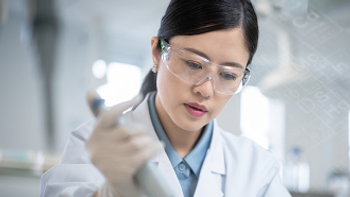
Heavy Metals in Baby Food – Where Are We Now?
Webinar Date/Time: Wed, Dec 13, 2023 11:00 AM EST
Learn how congress and the FDA are working together to set limits on heavy metal content in baby foods and how your lab can implement testing protocol with tips and tricks that will help improve analysis, speed sample prep, and reduce retesting.
Register Free:
Event Overview:
In late 2019, there were media reports of baby foods having high levels of arsenic, lead, cadmium, and mercury. Since then, a congressional committee has been assembled to legislate acceptability criteria for toxic heavy metals in these products. The FDA’s Closer to Zero plan lays out steps to minimize exposure, which includes improving current methodology to meet action levels in the proposed Baby Food Safety Act. This webinar will give an update on the current method modifications the FDA is considering as well as highlight microwave digestion and inductively coupled plasma–mass spectrometry (ICPMS) analysis techniques, used by the FDA, that can be implemented today in busy food testing labs.
Key Learning Objectives:
- Receive updates on FDA methodology for the testing of baby foods for heavy metals content according to proposed congressional limits
- Learn how to perform microwave digestion of 40 baby food and food SRMs samples and blanks in a single batch
- Learn how to best run your ICP-MS for food analysis, and how to have confidence in your data with our new software features
Who Should Attend:
- Metals analysis lab managers, chemists, and technicians involved in trace metals testing of foods
- Lab managers and lab technicians looking to optimize heavy metals analysis of foods
- Lab directors and commercial lab managers looking to increase throughput of food sample testing
Speakers
Kevin Kubachka, Ph.D.
Analytical Chemist
FDA Forensic Chemistry Center
In 2003, Dr. Kevin Kubachka received his B.S. degree in forensic chemistry from the Eastern Kentucky University. He then continued his education at the University of Cincinnati where he received his Ph.D. in chemistry (area of analytical chemistry) in 2007. Following graduate school, he was a federal post-doctoral researcher at the USEPA. After 16 months at the USEPA, he joined FDA’s Forensic Chemistry Center (FCC) as a chemist, where he has worked since September of 2008.
At the FCC, Dr. Kubachka has focused his efforts on elemental speciation and isotope ratio mass spectrometry (IRMS). His primary area of expertise is elemental analysis, with emphasis on elemental speciation of arsenic using liquid chromatography interfaced with inductively coupled plasma mass spectrometry (LC-ICP-MS). He has published several peer-reviewed journal articles and has given numerous invited presentations on these topics. Dr. Kubachka has been an instructor and course organizer for several FDA training courses.
Elaine Hasty
Senior Applications Chemist
CEM Corporation
Elaine Hasty graduated Cum Laude from the University of North Carolina, Charlotte with a Bachelor of Science degree in Chemistry. Her career began at Teledyne Allvac where she worked in the wet chemistry lab coordinating tests and reports for their superalloy manufacturing process. Elaine joined CEM in 1984 as an applications chemist for the Process Control division before moving to the newly formed Analytical division in 1986 where she helped pioneer microwave digestion and extraction techniques. She has worked closely with customers and analytical instrument manufactures as well as governing associations to develop formal methodology for the sample prep of everything from foods and feeds to environmental samples to geological samples and more.
Elaine is an active member of the AAPFCO Methods Forum Group and a Corporate Affiliate of AOAC International where she is regularly called on to provide expert opinion for development of methods. She has been published in numerous books, articles, and posters on the topics of microwave digestion and microwave extraction and is regarded by most as one of the world’s leading expert in microwave digestion.
Jenny Nelson, Ph.D.
Applications Scientist
Agilent Technologies
Jenny Nelson received her Ph.D. in Analytical Chemistry from the University of Cincinnati in 2007, and her MBA from Saint Mary’s College of California in 2011. Currently, Jenny is an Applications Scientist for the Life Science and Chemical Analysis team at Agilent Technologies, joining in 2012 (with a step away in 2019). Jenny is also an Adjunct Professor in the Department of Viticulture and Enology at the University of California, Davis, since 2013. Jenny has been very active with AOAC and ASTM over the past eight years, serving on expert review panels, chairing committees, and volunteering to develop new methods needed by the industry.
Jenny has extensive experience in operating and method development for Inductively Coupled Plasma Mass Spectroscopy (ICP-MS), Inductively Coupled Plasma Optical Emission Spectroscopy (ICP-OES), Microwave Plasma Atomic Emission Spectroscopy (MP-AES). Jenny has broad knowledge and experience in different speciation analysis for many sample matrices using GC-ICPMS and LC-ICPMS. As well as vast experience with sp-ICP-MS for many applications.
Register Free:
Newsletter
Get essential updates on the latest spectroscopy technologies, regulatory standards, and best practices—subscribe today to Spectroscopy.




